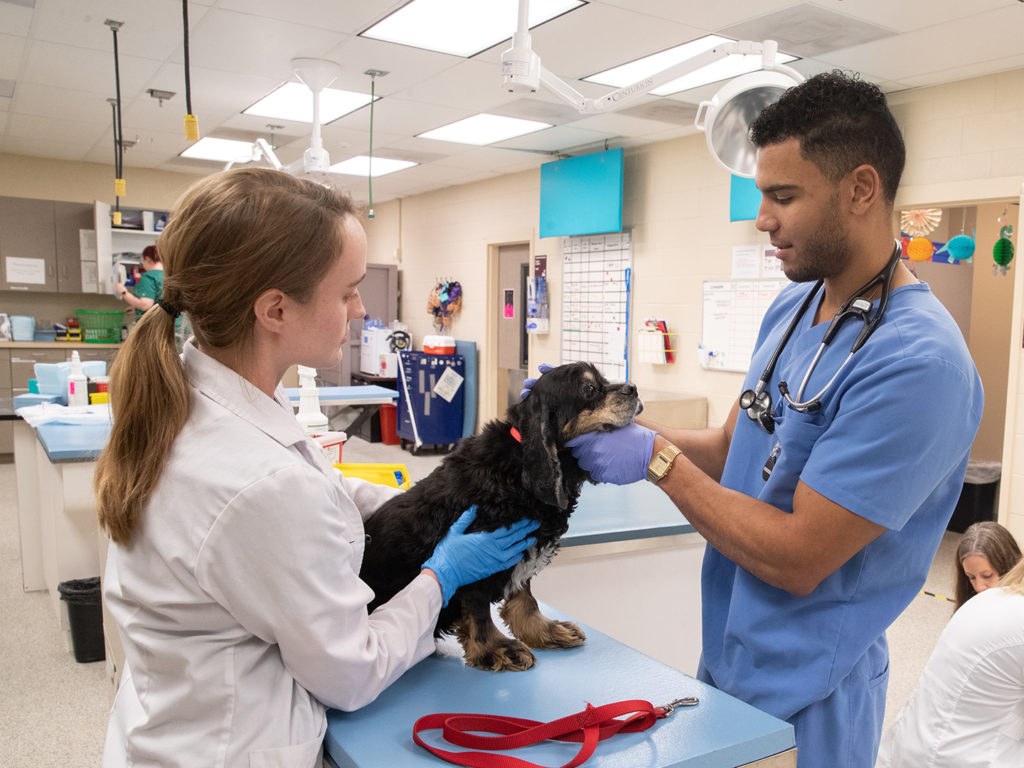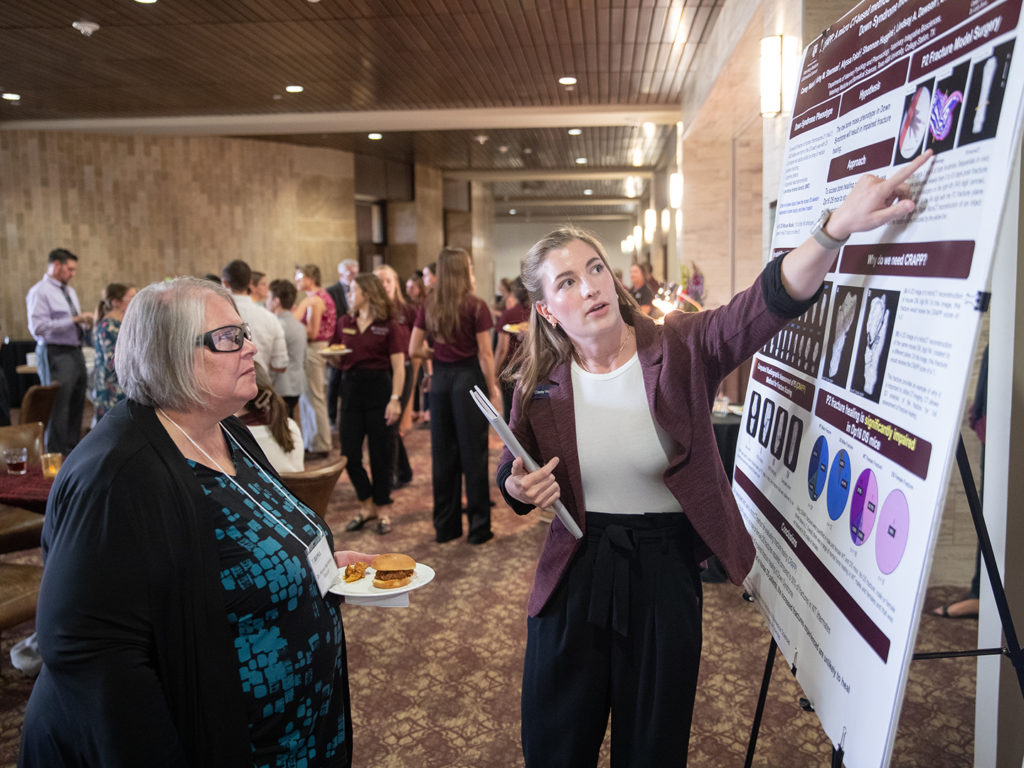Texas A&M Veterinary Medicine Program Receives Full Re-Accreditation By AVMA Council On Education

The Texas A&M University School of Veterinary Medicine & Biomedical Sciences (VMBS) has again received full accreditation for the next seven years by the American Veterinary Medical Association (AVMA) Council on Education (COE). Dr. John R. August, the Carl B. King Dean of Veterinary Medicine, announced the accreditation to the school on Dec. 20.
The AVMA COE is recognized by the United States Department of Education and the Council for Higher Education Accreditation and is responsible for accrediting programs that offer a professional Doctor of Veterinary Medicine (DVM) degree in the United States, Canada, and other nations. It is recognized internationally as the benchmark for quality in veterinary medical education.
The AVMA COE’s decision to grant the VMBS accreditation reflects the high educational standard of the school. The VMBS is one of the largest schools and colleges of veterinary medicine nationally, with 684 DVM students and a current class size of 180 DVM students. As of May 2022, the VMBS has graduated 8,758 veterinarians.
“This is a resounding endorsement of the quality of the faculty, staff, and students upon which all quality DVM educational programs depend, as well as the leadership and support of Texas A&M University, The Texas A&M University System, and the Texas A&M System Board of Regents,” August said.
August noted that during the AVMA COE accreditation site visit exit interview in September, the accreditation team commented on the VMBS’ positive learning and working environment and complimented the faculty, staff, and students. The team also noted the robust research program and success in engaging students in research.

Further, the accreditation team commended the VMBS on excellent educational opportunities at the Houston SPCA; the Veterinary Emergency Team; the 2+2 program at the VMBS’ Veterinary, Education, Research, & Outreach (VERO) program in Canyon, Texas; the noticeable dedication to diversity and an inclusive environment; professional development opportunities; outcomes assessment initiatives; and the Center for Education Technologies with its support in the curricular review process.
The AVMA COE reviews each program every seven years to determine if renewing accreditation is appropriate and if the program meets the expected standards. The COE measures veterinary programs according to 11 standards, including curriculum, facilities, clinical resources, and research.
These standards are reviewed regularly by a number of parties, including the AVMA House of Delegates, veterinary practitioners, faculty, deans of schools and colleges of veterinary medicine, veterinary students, and the public.
The COE accreditation process is rigorous and ensures that veterinary medical students receive a high-quality education. By meeting the objectives set by the AVMA COE, DVM graduates should be well prepared to enter the veterinary profession.
###
For more information about the Texas A&M School of Veterinary Medicine & Biomedical Sciences, please visit our website at vetmed.tamu.edu or join us on Facebook, Instagram, and Twitter.
Contact Information: Jennifer Gauntt, Director of VMBS Communications, Texas A&M School of Veterinary Medicine & Biomedical Sciences, jgauntt@cvm.tamu.edu, 979-862-4216


